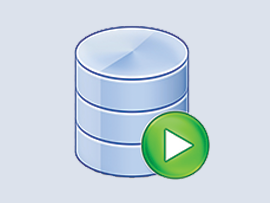ICT Skills SQL database online training typically includes comprehensive lessons and hands-on practice with SQL queries and database concepts. Our courses are structured to accommodate learners with different levels of experience, from beginners who are new to databases, to advanced learners interested in complex topics like performance optimization, data security, and database administration.
In today’s data-driven world, businesses and organizations rely heavily on robust data management solutions to keep their operations smooth and efficient. One of the most popular and effective solutions is the SQL database. But what exactly is an SQL or MySQL database, and how can it benefit you? Join Today ICT Skills SQL Online Training and Let’s delve into the essentials of SQL databases and discover how they can transform your data handling practices.
SQL stands for Structured Query Language, a standardized language used to manage and manipulate relational databases. An SQL database uses this language to perform various operations such as querying, updating, and managing data. It organizes data into structured tables that can be easily accessed, updated, and analyzed.
Benefits of Using an SQL Database
- Efficient Data Management: SQL databases are designed to handle large volumes of data efficiently. They allow for quick retrieval and management of data, which is crucial for making timely business decisions.
- Scalability: Whether you are a small startup or a large enterprise, SQL databases can scale according to your needs. They are capable of handling increasing amounts of data without compromising performance.
- Data Integrity: SQL databases ensure the accuracy and consistency of data through features like primary keys, foreign keys, and constraints. This integrity is vital for maintaining reliable and trustworthy information.
- Advanced Querying: With SQL, users can perform complex queries to retrieve specific information from large datasets. This capability enables detailed data analysis and reporting.
- Data Security: SQL databases offer robust security features, including user authentication, access control, and encryption. These features help protect sensitive data from unauthorized access and breaches.
- Ease of Use: SQL is known for its straightforward syntax, making it relatively easy to learn and use. This simplicity allows both beginners and experienced users to efficiently interact with the database.
Types of SQL Database Systems
Several popular SQL database management systems (DBMS) are widely used in various industries:
- MySQL: An open-source SQL database known for its reliability and performance, often used in web applications.
- PostgreSQL: An open-source database with advanced features, including support for complex queries and data types.
- Microsoft SQL Server: A comprehensive SQL database solution with strong integration with Microsoft products and services.
- Oracle Database: A powerful and feature-rich database system suitable for large enterprises with complex data requirements.
SQL database online training at India is a valuable training option for anyone looking to work with relational databases, analyze data, or pursue a career in fields like software development, data analysis, data science, and database administration. Whether you’re a beginner or an experienced professional, there are a variety of training options available to suit your learning style and goals.
Course Features
- Lectures 0
- Quizzes 0
- Duration 8 weeks
- Skill level All levels
- Language English, Gujarati, Hindi
- Students 4
- Assessments Self
Curriculum
- 18 Sections
- 0 Lessons
- 8 Weeks
- Introduction to SQL0
- Introduction to Databases and RDMBS0
- Install a Database Engine0
- SQL Syntax0
- SQL Data Types0
- SQL Operators0
- SQL Expressions0
- SQL Comments0
- SQL – DDL Commands0
- SQL – DML Commands0
- SQL – DCL Commands0
- DCL Operations0
- SQL Functions0
- Sub Queries0
- SQL Clauses0
- SQL Joins0
- SQL Views0
- SQL Indexes0

